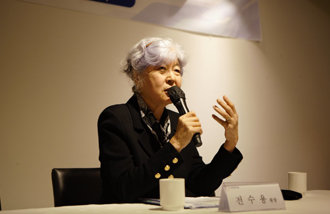How Xi Jinping could win the Nobel Peace Prize
How Xi Jinping could win the Nobel Peace Prize
Posted June. 08, 2013 04:42,
The London-based newspaper Financial Times carried Monday a column titled How Shinzo Abe could win the Nobel Peace Prize. I was attracted to the title and read through the column. The co-writers James Clad, a senior adviser at the Center for Naval Analyses, and Robert Manning, a fellow at the Atlantic Council`s Brent Scowcroft Center on International Security argued: If the historical record is truly open to differing interpretations in Japan, then a grand gesture by Tokyo conceding Takeshima/Dokdo to Seoul would amount to an unimpeachable act of good will, tantamount to Anwar Sadat of Egypt going to Israel in 1977, or to Richard Nixons visit to China in 1972. They wrote that the concession would transform Korean perceptions of Japan and that the Japanese prime minister would become a leading contender for the Nobel Peace Prize.
It is preposterous that they writers discuss Japans concession of Dokdo, which is South Korean territory. But it is also nonsensical to talk about the Nobel Peace Prize because even if the Japanese prime minister gives up the territorial claim over Dokdo, it would be nothing but recognizing the islets as South Korean territory. I became angry over the irresponsible argument by foreigners who do not know the essence of the Dokdo issue and the lightness of the foreign newspaper, which carried such an absurd column.
Abe should not even dream about winning the Nobel Peace Prize. However, Chinese President Xi Jinping can be a candidate because if he acts with determination, he would be able to get North Korea to abandon its nuclear program, which is the biggest factor in Asia for instability.
In fact, the North Korea-China ties have been changing since Xis inauguration. Following the Norths third nuclear test, Beijing implemented its own sanctions on Pyongyang including closing North Korean bank accounts in China. At a time when South Korea and the United States were unprecedentedly united in sternly dealing with the North, Chinas change made Pyongyang anxious. Although North Korean leader Kim Jong Un sent a special envoy to China right after the South Korea-U.S. summit last month, Xi embarrassed the North by emphasizing denuclearization three times. Pyongyangs acceptance of Seouls proposal for inter-Korean talks ahead of the upcoming U.S.-China summit also results from its anxiety. Probably, the North could not afford to stand by and watch the U.S. and Chinese leaders agree on not tolerating North Koreas nuclear program.
The Chinese president has also begun to intervene in the Middle East conflicts, which have long been considered an issue of U.S. concerns. Last month, China simultaneously invited Israeli Prime Minister Benjamin Netanyahu and Palestinian President Mahmoud Abbas. Although the Israel-Palestine meeting in Beijing did not take place, China assumed the role of an arbitrator for peace in the Middle East. Chinas intervention in the Israel-Palestine conflicts prompted speculation in the U.S. that Beijing initiated its strategy to rearrange the world order as a G2 country.
Though Chinas involvement in the Middle East looks unfamiliar, everybody welcomes its intervention in North Korea issues. U.S. Secretary of State John Kerry said during his trips to South Korea, China and Japan in April that China was the only country that could exercise influence over North Korea. Pyongyang accepted the dialogue offer as part of its strategy to prevent the leaders of South Korea, the U.S. and China from standing united. Nevertheless, it is clear that the North flinched at Chinas pressure. If the Chinese leader makes up his mind to end the vicious circles of responding to periodic North Korean provocations with actions that reward such behavior, chances of the Norths change will grow higher.
U.S. President Barack Obama and Chinese President Xi Jinping who will meet at the Sunnylands estate in California this weekend are the worlds two most powerful leaders. Obama has already won the Nobel Peace Prize. If the Chinese leader gets actively involved in solving conundrums such as the North Korean nuclear issue, he can make accomplishments enough to win the Nobel Peace Prize.
Xi has another card to play: a North Korea-China summit. He can put tremendous pressure on Kim Jong Un if he links the summit with Pyongyangs nuclear abandonment. If the Chinese leader refuses to meet with Kim, the North Korean leader would become an odd man out in the world. That would jeopardize Kims basis for power. If Xi leads North Korea to become a normal country and make it give up its nuclear program, he will have the honor of becoming a world-class leader going beyond Mao Zedong and Deng Xiaoping.
Headline News
- US: Japan will double its defense budget, and so should S. Korea
- Trump's win could present opportunities for S. Korean defense firms
- ‘Don’t expand the war in Ukraine,’ Trump tells Putin
- Korean fencing men's sabre wins World Cup team event
- Yoon who should take the lead and reinvent for the second half of his term







